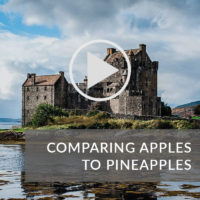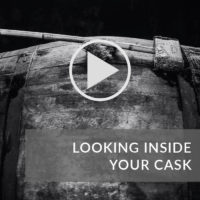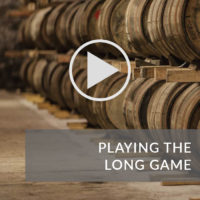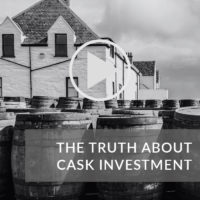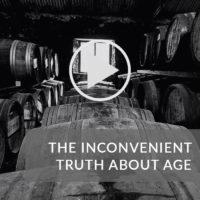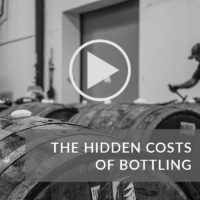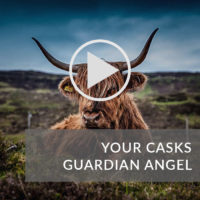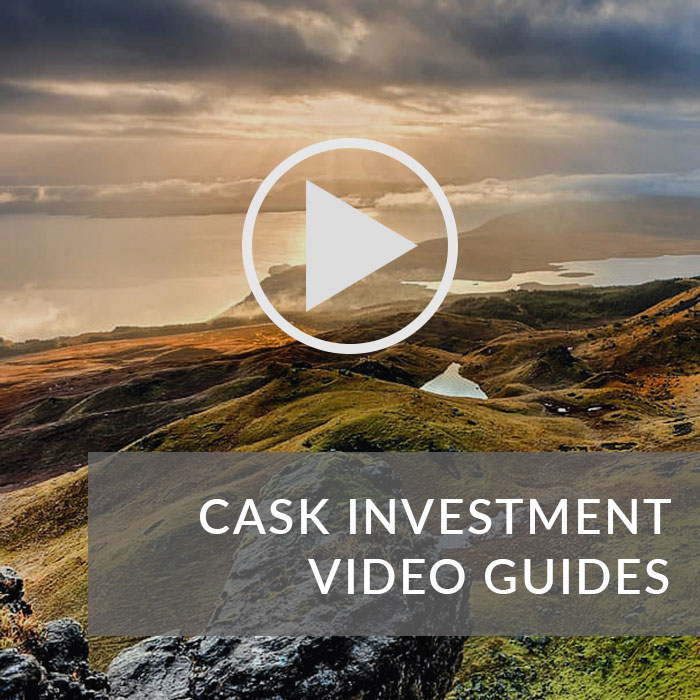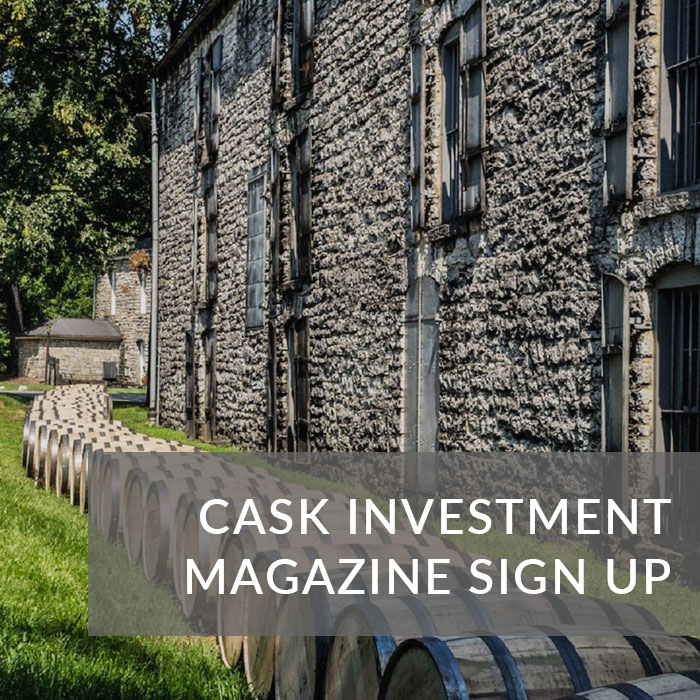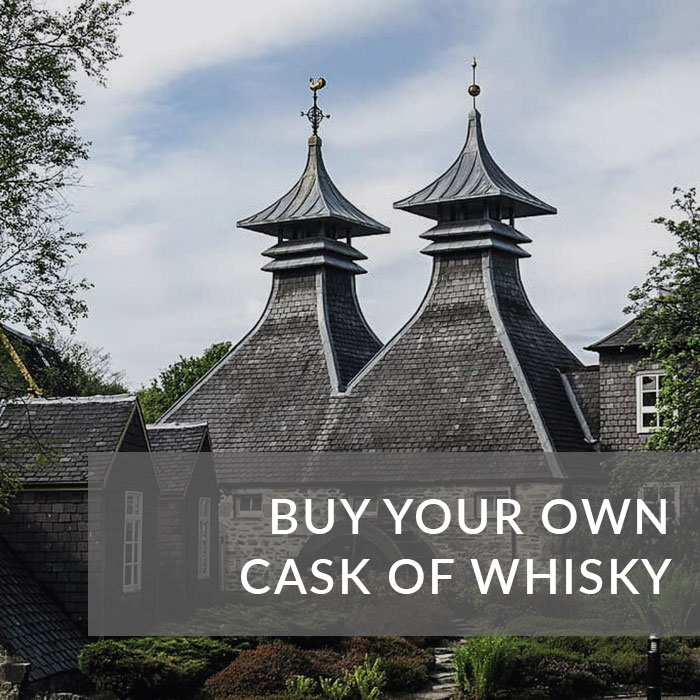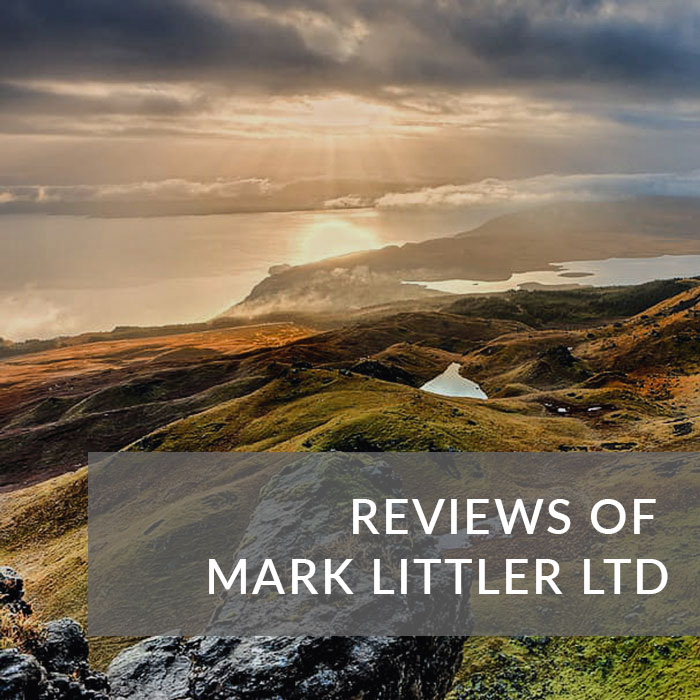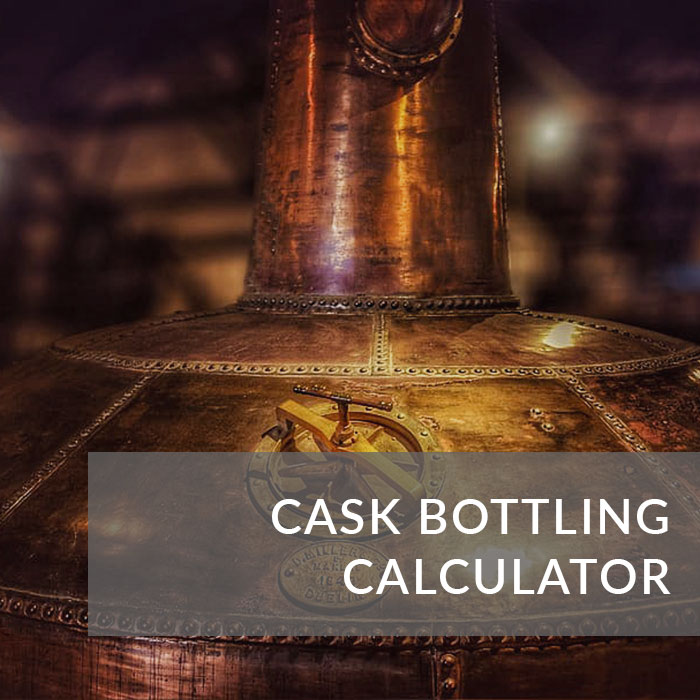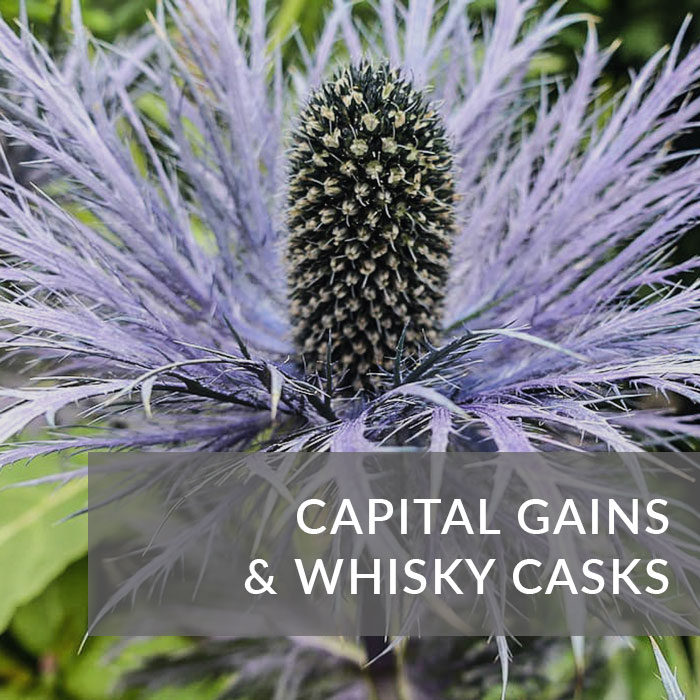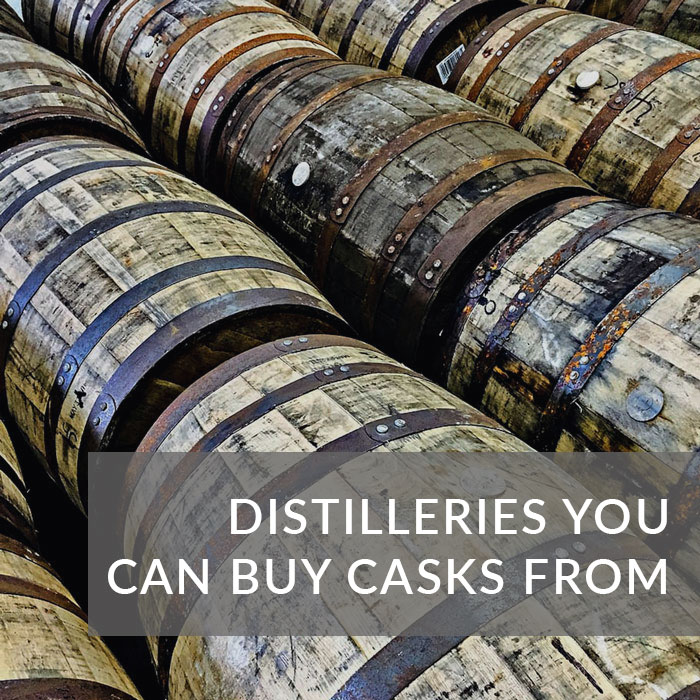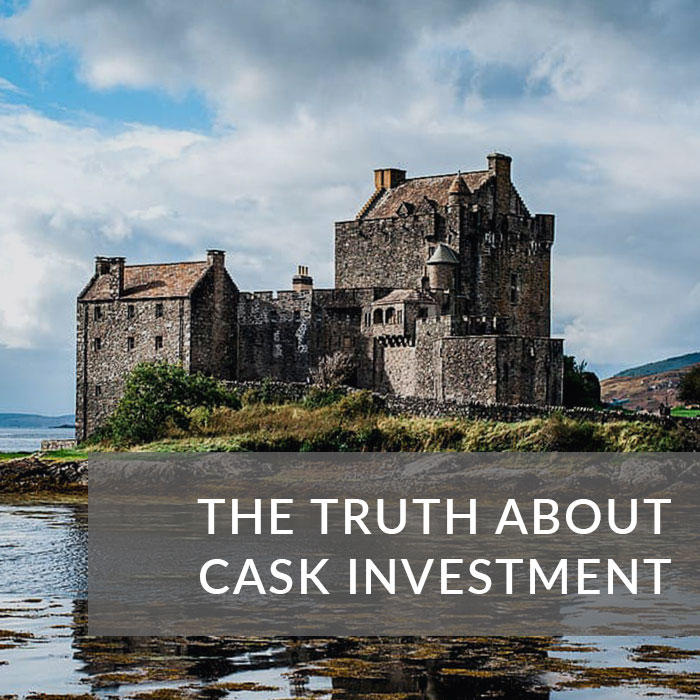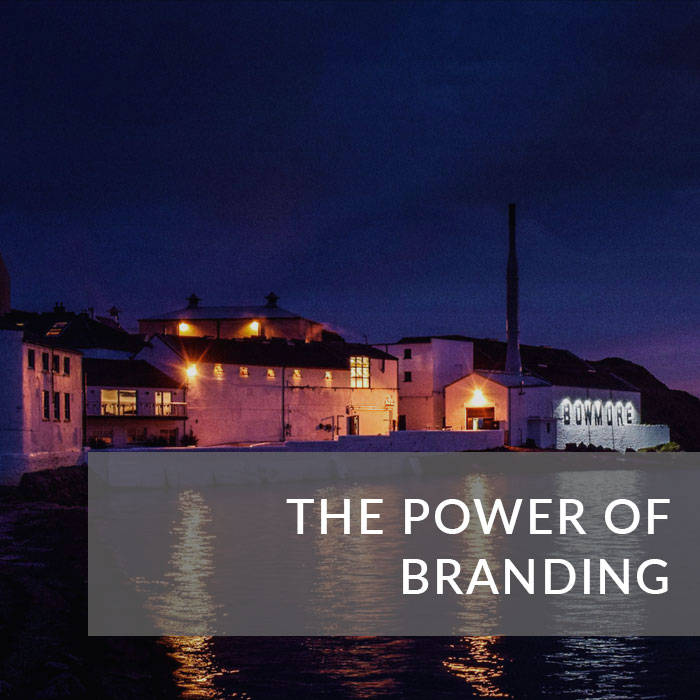WHY YOU SHOULDN’T USE BOTTLE COUNT WHEN BUYING A CASK
It isn’t industry practice to use bottle count when describing the size of a whisky cask as it can be misleading
Watch Our Cask Investment Video Guides
Bulk Litres vs Bottle Count for Whisky Casks
Video Guide 2 of 10
In the whisky cask industry the volume of a cask is described in litres, more specifically when you are looking at buying a cask of whisky you should be looking at the Bulk Litres, ABV and RLA (or OLA if the cask is less than 5 years old).
Why you shouldn’t use bottle count to measure the size of a cask
There are several reasons why it is not good practice to describe a cask based on the number of bottles:
How big is the bottle?
Firstly, how big is the bottle being used to create that number? Is it 70cl, 75cl, 1 litre, or perhaps miniatures? As there is no standard bottle size this number can mean absolutely anything and is not reliable.
Will it be bottled at cask strength?
Is it stated whether those bottles are at cask strength or have they been diluted? You can legally dilute whisky to 40% and still call it whisky, however the value of diluted whisky is lower than cask strength, so getting more bottles from a cask doesn’t necessarily mean your cask will be worth more.
Are bottling losses accounted for?
Does the number stated account for loss during the bottling process? Between 1 and 5% of a cask can be lost during bottling due to the filtration process and loss in the lines.
Is the angel’s share accounted for?
Does the number stated consider that the contents of a cask changes with time? The casks are not completely sealed and 1 – 2% is lost each year due to evaporation, also known as the angel’s share, and the rate increases with the age of the cask. This means that the number of bottles in a cask you buy now will be different after a few years, and vastly different if you plan to keep it for 15 – 30 years.
For example, if you have a 500 litre cask, with an average natural loss of 1% per year, you might expect to see a drop of 70 litres over the course of 15 years. Meaning even if you are satisfied that you have considered the other questions above, if you are not buying the cask for immediate bottling the number still doesn’t mean anything as it will change by the time you decide to bottle your whisky.
Are you intending to bottle the cask?
Finally, are you actually intending to bottle your whisky, and if so, are you aware of the cost and the licences necessary to sell those bottles? At Mark Littler LTD we have found that the most cost-effective way to sell your whisky is to sell it in bond. This is because the cost of bottling a cask and obtaining the licences necessary to sell those bottles is inhibitive to the general public.
Our customers sometimes choose to draw a few bottles for personal use (no licences necessary), they pay the duty and bottling costs for those and then sell the remainder of the cask in bond.
Send me my free cask buying guide
What you should know when buying a cask
If you are planning to buy and eventually sell your cask as an investment, a potential buyer will not want to know the number of bottles in the cask – that is for a future bottler to decide – they will want to know:
- The Bulk Litres
- The ABV
- The RLA
They will also want to know the other points discussed in the second video in our video guide: 8 things you need to know before buying a cask. And if you are looking at buying a cask, whether for personal use or as an investment, these are also the things you should be looking for.
If you are thinking of buying a whisky cask and want to know more about making an informed decision you can sign up to receive our whisky cask buying guide; a free magazine created by us to help you learn everything you need to know about becoming a cask owner.
Advice You Can Trust
Since 2016 our aim has been simple – to provide a trustworthy source of information to help people make sound decisions when they are selling their items. To date we have sold millions of pounds worth of antiques and whisky (both casks and bottles) for our clients.
We’re now applying this same logic to help people invest in casks of whisky. Rather than providing sales pitches disguised as educational material, it’s our mission to become the ultimate source of open and honest cask investment guidance.
The information you will find in OUR GUIDE, CASK VIDEOS, BLOG and CALCULATOR is all designed to help you make a balanced decision. We would rather you knew all the facts and didn’t buy a cask than buy one based on ‘fake news’.
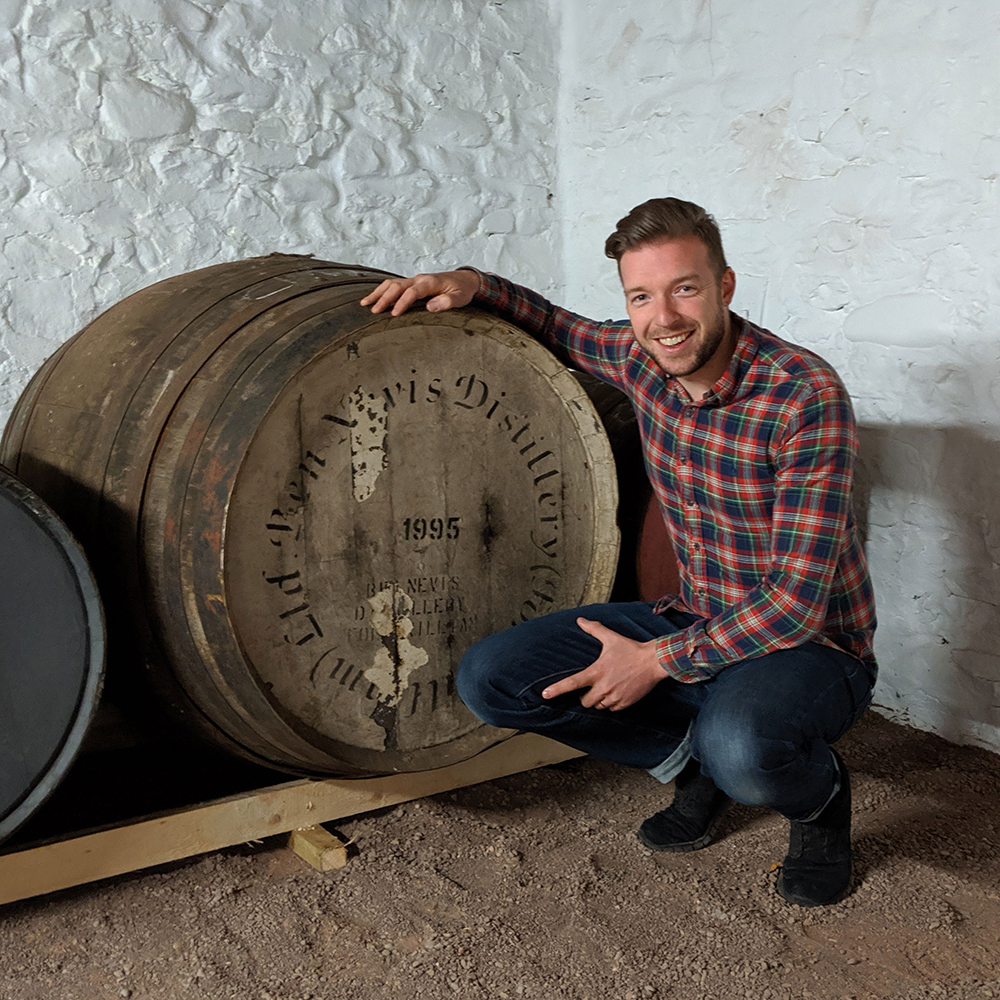
It isn’t industry practice to use bottle count when describing the size of a whisky cask as it can be misleading
Bulk Litres vs Bottle Count for Whisky Casks
Video Guide 3 of 10
In the whisky cask industry the volume of a cask is described in litres, more specifically when you are looking at buying a cask of whisky you should be looking at the Bulk Litres, ABV and RLA (or OLA if the cask is less than 5 years old).
Why you shouldn’t use bottle count to measure the size of a cask
There are several reasons why it is not good practice to describe a cask based on the number of bottles:
How big is the bottle?
Firstly, how big is the bottle being used to create that number? Is it 70cl, 75cl, 1 litre, or perhaps miniatures? As there is no standard bottle size this number can mean absolutely anything and is not reliable.
Will it be bottled at cask strength?
Is it stated whether those bottles are at cask strength or have they been diluted? You can legally dilute whisky to 40% and still call it whisky, however the value of diluted whisky is lower than cask strength, so getting more bottles from a cask doesn’t necessarily mean your cask will be worth more.
Are bottling losses accounted for?
Does the number stated account for loss during the bottling process? Between 1 and 5% of a cask can be lost during bottling due to the filtration process and loss in the lines.
Is the angel’s share accounted for?
Does the number stated consider that the contents of a cask changes with time? The casks are not completely sealed and 1 – 2% is lost each year due to evaporation, also known as the angel’s share, and the rate increases with the age of the cask. This means that the number of bottles in a cask you buy now will be different after a few years, and vastly different if you plan to keep it for 15 – 30 years.
For example, if you have a 500 litre cask, with an average natural loss of 1% per year, you might expect to see a drop of 70 litres over the course of 15 years. Meaning even if you are satisfied that you have considered the other questions above, if you are not buying the cask for immediate bottling the number still doesn’t mean anything as it will change by the time you decide to bottle your whisky.
Are you intending to bottle the cask?
Finally, are you actually intending to bottle your whisky, and if so, are you aware of the cost and the licences necessary to sell those bottles? At Mark Littler LTD we have found that the most cost-effective way to sell your whisky is to sell it in bond. This is because the cost of bottling a cask and obtaining the licences necessary to sell those bottles is inhibitive to the general public.
Our customers sometimes choose to draw a few bottles for personal use (no licences necessary), they pay the duty and bottling costs for those and then sell the remainder of the cask in bond.
Send me my free cask buying guide
What you should know when buying a cask
If you are planning to buy and eventually sell your cask as an investment, a potential buyer will not want to know the number of bottles in the cask – that is for a future bottler to decide – they will want to know:
- The Bulk Litres
- The ABV
- The RLA
They will also want to know the other points discussed in the second video in our video guide: 8 things you need to know before buying a cask. And if you are looking at buying a cask, whether for personal use or as an investment, these are also the things you should be looking for.
If you are thinking of buying a whisky cask and want to know more about making an informed decision you can sign up to receive our whisky cask buying guide; a free magazine created by us to help you learn everything you need to know about becoming a cask owner.
Advice You Can Trust
Since 2016 our aim has been simple – to provide a trustworthy source of information to help people make sound decisions when they are selling their items. To date we have sold millions of pounds worth of antiques and whisky (both casks and bottles) for our clients.
We’re now applying this same logic to help people invest in casks of whisky. Rather than providing sales pitches disguised as educational material, it’s our mission to become the ultimate source of open and honest cask investment guidance.
The information you will find in OUR GUIDE, CASK VIDEOS, BLOG and CALCULATOR is all designed to help you make a balanced decision. We would rather you knew all the facts and didn’t buy a cask than buy one based on ‘fake news’.

